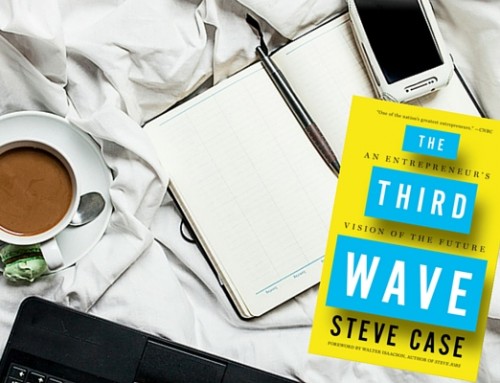There is a myth that successful companies begin with grandiose ambitions. The implication is that entrepreneurs should start with megalomaniac goals in order to succeed. To the contrary, my observation is that great companies began by wondering about simple things, and this leads to asking simple questions that beget companies:
- Therefore, what? This question arises when you spot or predict a trend and wonder about its consequences. It works like this: “Everyone will have a smartphone with a camera and Internet access.” Therefore, what? “They will be able to take pictures and share them.” Therefore, what? “We should create an app that lets people upload their photos, rate the photos of others, and post comments.” And, voila, there’s Instagram. (Inspired by The Art of Profitability by Adrian Slywotzsky)
- Isn’t this interesting? Intellectual curiosity and accidental discovery power this method. Ray Kroc was an appliance salesman who noticed that a small restaurant in the middle of no where ordered eight mixers. He visited the restaurant out of curiosity, and it impressed him with its success. He pitched the idea of similar restaurants to Dick and Mac McDonald, and the rest is history.
- Is there a better way? Frustration with the current state of the art is the hallmark of this path. Ferdinand Porsche once said, “In the beginning I looked around and, not finding the automobile of my dreams, decided to build it myself.” (From Forbes FYI, Winter 2003) Steve Wozniak built the Apple I because he believed there was a better way to access computers than having to work for the government, a university, or a large company.
- Why doesn’t our company do this? Frustration with your current employer is the catalyzing force in this case. You’re familiar with the customers in a market and their needs. You tell your management that the company should create a product because customers need it, but management doesn’t listen to you. Finally, you give up and do it yourself.
- It’s possible, so why don’t we make it? Markets for big innovations are seldom proven in advance, so a what-the-hell attitude characterizes this path. For example, back in the 1970s a portable phone was incomprehensible to most people when Motorola invented it. At the time, phones were linked to places, not people. However, the Martin Cooper and the engineers at Motorola went ahead and made it, and the rest is history. Don’t let anyone tell you that the “if we build it, they will come” theory doesn’t work.
- Where is the market leader weak? Three conditions make a market leader vulnerable: first, when the leader is committed to a way of doing business. For example, IBM distributed computers through resellers, so Dell could innovate by selling direct. Second, when the customers of the leader are dissatisfied. For example, the necessity to drive to Blockbuster stores to pick up and return videos opened the door for Netflix. Third, when the market leader is milking a cash cow and stops innovating. This is what made Microsoft Office susceptible to Google Docs.
“How can we make a boatload of money?” is not one of the questions. Call me idealistic, but the genesis of great companies is answering simple questions that change the world, not the desire to become rich.
This post is a tiny part of Guy Kawasaki’s latest book, The Art of the Start 2.0. Read it and reap…



Good
Hi Guy, an excellent post and I look forward to reviewing Art of the Start 2.0 this weekend. Your post here has strong parallel to the post I wrote last year called, “Inspiring Breakthrough Innovation Through Five Simple Questions.” https://neputation.wordpress.com/2014/04/21/inspiring-breakthrough-innovation-through-simple-questions/ The essence of innovation can be summed up with following question, ““What is the job our customers are trying to get done and how can we help them do it 5X/10X/50X better than current alternatives in time, costs, revenues, returns and/or risks?”
As much as i would love to refrain, America knows business better than any other nation here ,being from India I can find some of the things you said being done knowingly or unknowingly by my friends running small business in Gujrat and other parts of my small country.
I think if wisdom like this could be shared in our national language HINDI , it would be awesome. Small business people need, wisdom which you shared, problem is they don’t have access to your blogs. I am sure people know who you who are in big cities , but what about people who are not even having internet access ? Economy can only have holistic development if even small business owners know what’s the right way. I know it sounds crazy ..but still…What do you think Guy ??
What is more powerful than the thread about great companies asking simple rungs of questions that elevates towards greater development.
Powerful stuff, Guy!
Guy, your post have brought some rare thoughts I never thought of before; and again, mentioning Adrian’s book – the Art of Profitability – has helped me relate with the many stories he used in reaching his audiences. Stories makes it simple… Thanks Guy.
Guy, that are great tips.
To question also the simplest things in life is proven by many inventors that it is an awesome way to success.